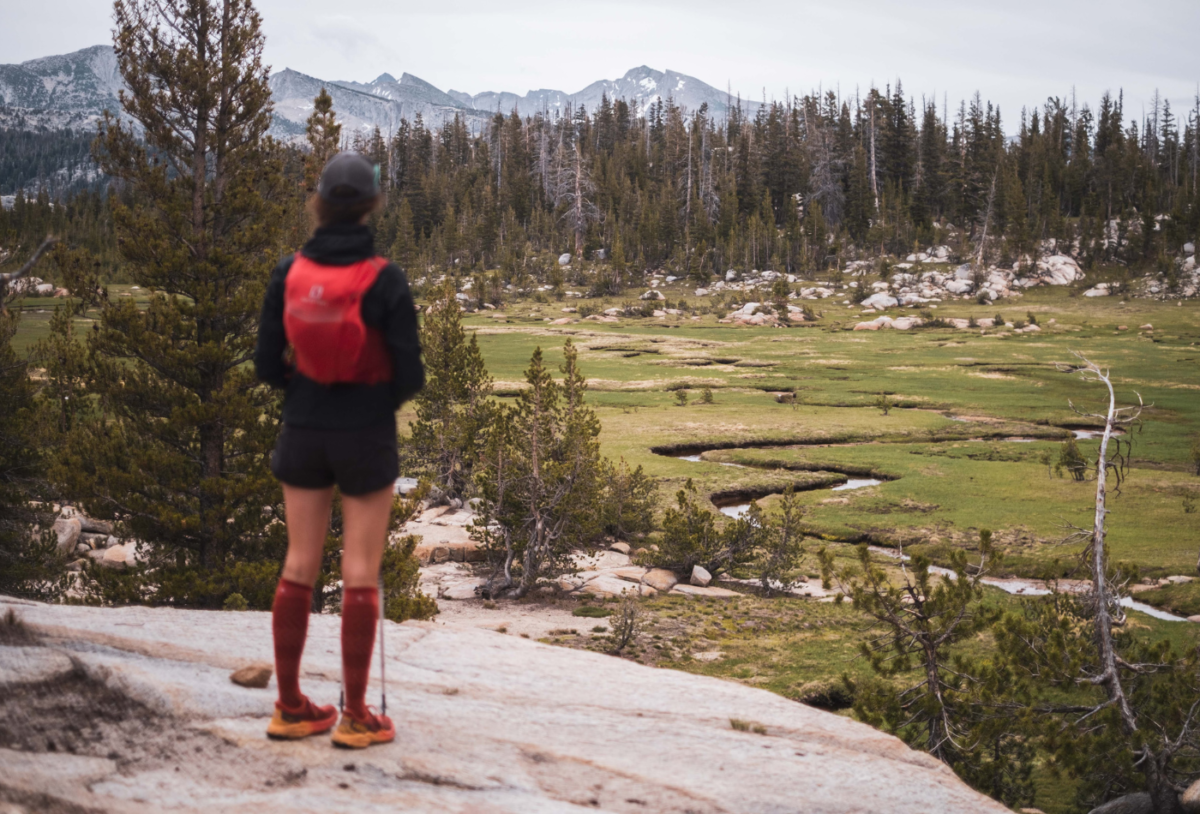Earth Day – aside from one day to simply declare your love and good intent to care for the environment and move on, Earth Day is a movement and commitment towards taking environmental action for the long haul.

We are trail runners! We spend hours on the trails, pushing our physical and mental limits, enamoured by the beauty of the trails and having a deep love for the natural landscapes our two feet can take us. You’d think our outdoor exploration and immense appreciation for running in natural areas would directly correlate to environmental care right?!
Well, yes and no. While trail running is certainly a lower impact outdoor sport, everything we do still has its impact. With mindful intent and purpose in how we recreate outside, we can work towards becoming more informed and better stewards of the Earth.
Between single-use plastics and wrappers from bars, gels and sports drinks, driving to the trailheads or flying to your destination race, and running in these often remote and wild natural areas – every action we take has an impact on the environment.

So as avid trail runners and trail users, what measures can we take to support and care for the natural areas we inhabit?
Plogging and ‘Taking 3 for the Trail’
Pick up trash on the trails! Plogging is a fusion of jogging, with the Swedish expression ‘plocka upp’ meaning to collect. Picking litter off the trails is an easy and effective way to clean up the natural areas we explore. And why not join the ‘Take 3 or the Trail’ movement by picking up three pieces of trash every time you’re on the trails. Remember, if you don’t like seeing garbage on the trails, the next person on the trails won’t either, so consider picking it up to make a cleaner environment for everyone to enjoy.
Hop on a Bike or Carpool
We are trail runners, we LOVE human-powered adventures! So why not take it a little further and create a completely human-powered adventure by hopping on your bike (or maybe even paddle) to reach the trailhead before your run. Alternatively, carpooling or finding rideshares always beats out a solo drive to the trails.
Go Back to the Basics with the Leave No Trace Principles!
Plan ahead and prepare:
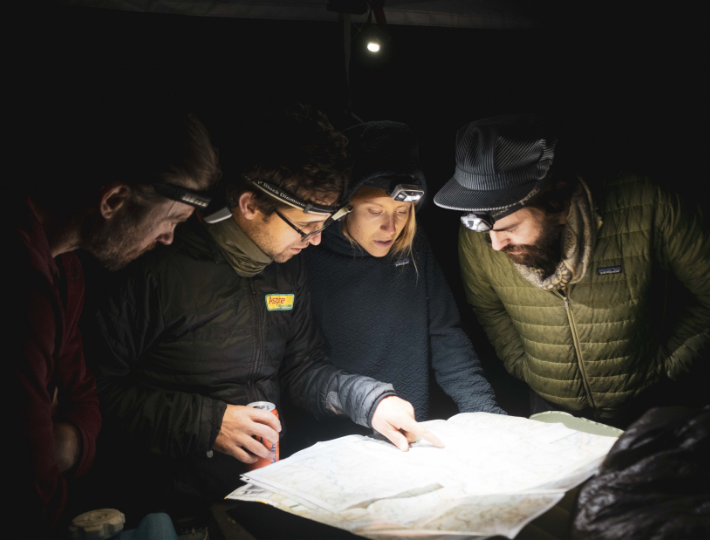
- Research where you are going, what gear is necessary, and ways to lessen your impact on the area. Preparation can ensure greater safety and minimize resource damage to the site.
Travel on Durable Surfaces
- Always stay on marked trails to avoid damaging delicate terrain and vegetation.
Dispose of Waste Properly
- Pack in what you pack out. Be especially mindful of small pieces of trash such as the tops of gel wrappers and toilet paper.
Leave What You Find
- See a beautiful rock or flower on the trails? Take a photo instead of taking the object back with you. If you enjoyed its beauty, it’s likely the next trail user will appreciate it as well.
Minimize Campfire Impacts
- First and foremost, be informed of the area’s local fire regulations and rules. If you are able to safely have a fire, ensure it is on a designated fire site or on a durable and safe surface to reduce environmental impact.
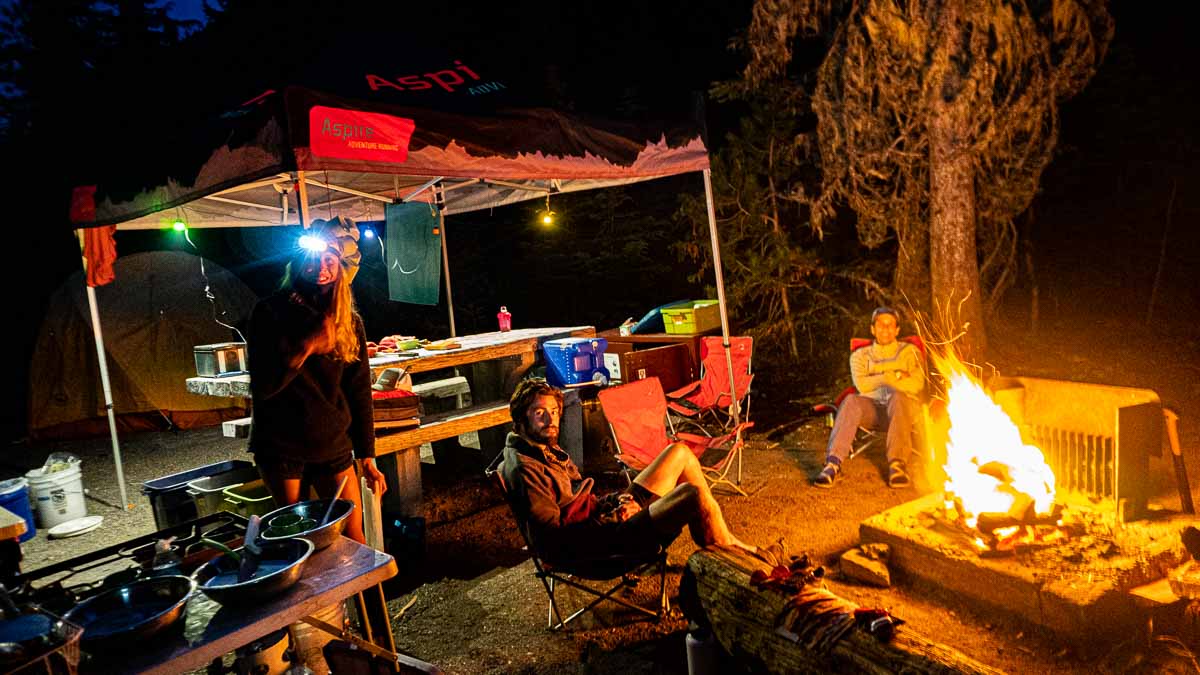
Respect Wildlife
- Travel respectfully and do not pursue, feed or force animals to flee. For most wildlife, passing quietly is best, however, when in bear country it is good to make noise to ensure your safety. Always keep a respectable distance between you and all wildlife.
Be Consideration of Other Visitors
- Trail Runners aren’t the only users on the trails. Trails may have a blend of hikers, bikers, and even horses. It’s important to be kind, respectful, slow down and not crowd another’s person’s space.
Engage in Gear Swaps and Utilized Used Gear
With new colours, styles, and trail running gear being released every season, it’s easy to jump on the bandwagon of new trail gear. However, while many of these brands represent outdoor pursuits and claim to be more sustainable, often, they still fall into the avenue of fast fashion with harsh environmental impact and unfair working environments for their employers. Instead of opting for new, consider used and second hand. It’s also important to ask yourself if your gear needs to be replaced in the first place. Remember: the most sustainable gear you have is the gear you already own.
Give Back through Volunteering
What local trails do you spend the most time on? Make a fun day out of it with friends, by getting active and outside through local trail maintenance. This can be surprisingly easy to get involved with, often by simply reaching out to a local running store or municipal park to learn more.
Donate
Consider donating to organizations that are doing their part in caring for the climate! Research and find organizations that you feel personally passionate about. Maybe it’s clean water and ocean initiatives, plastic pollution, local trail associations, community gardens, National Parks or another organization you feel personally connected to. Whatever it may be, make it personal and meaningful to you.
Vote
While personal lifestyle changes and mindfulness of we utilize outdoor spaces, political and large-scale action is also greatly necessary for environmental sustainability and lasting change. Voting in local, state, and federal elections is key to having your voice be heard and be a part of decision-making that affects you, your community and the planet.
Speak up
Be an advocate for the planet both on and off the trails! Speak to others about how we can collectively come together to ensure a more sustainable and healthy future. Whether it’s getting involved and speaking on a larger scale, or having conversations with a few of your friends on the trails. Even small conversations are impactful and can create ripple effects to waves of great change spreading to others. Don’t forget that the words we speak have the power to turn into big action, which is the catalyst for radical change.
What action can you take TODAY to be a more mindful, eco-conscious trail running and steward of the Earth?
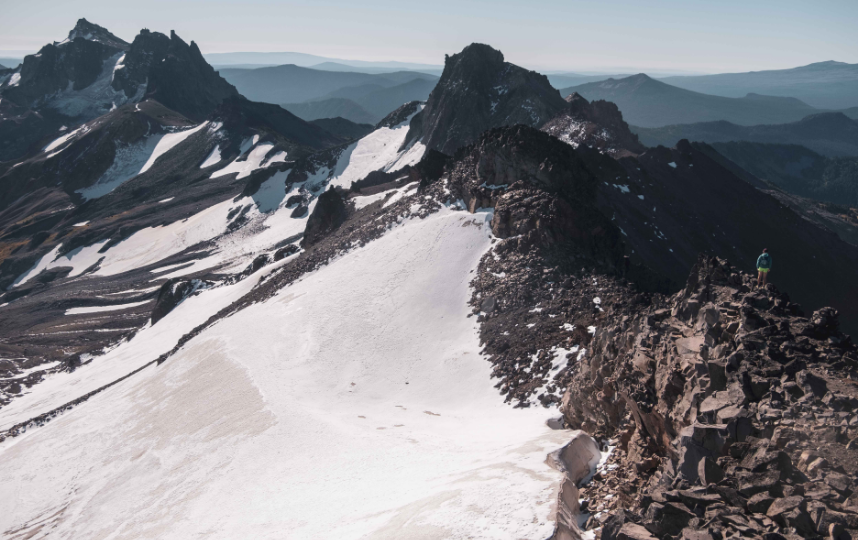
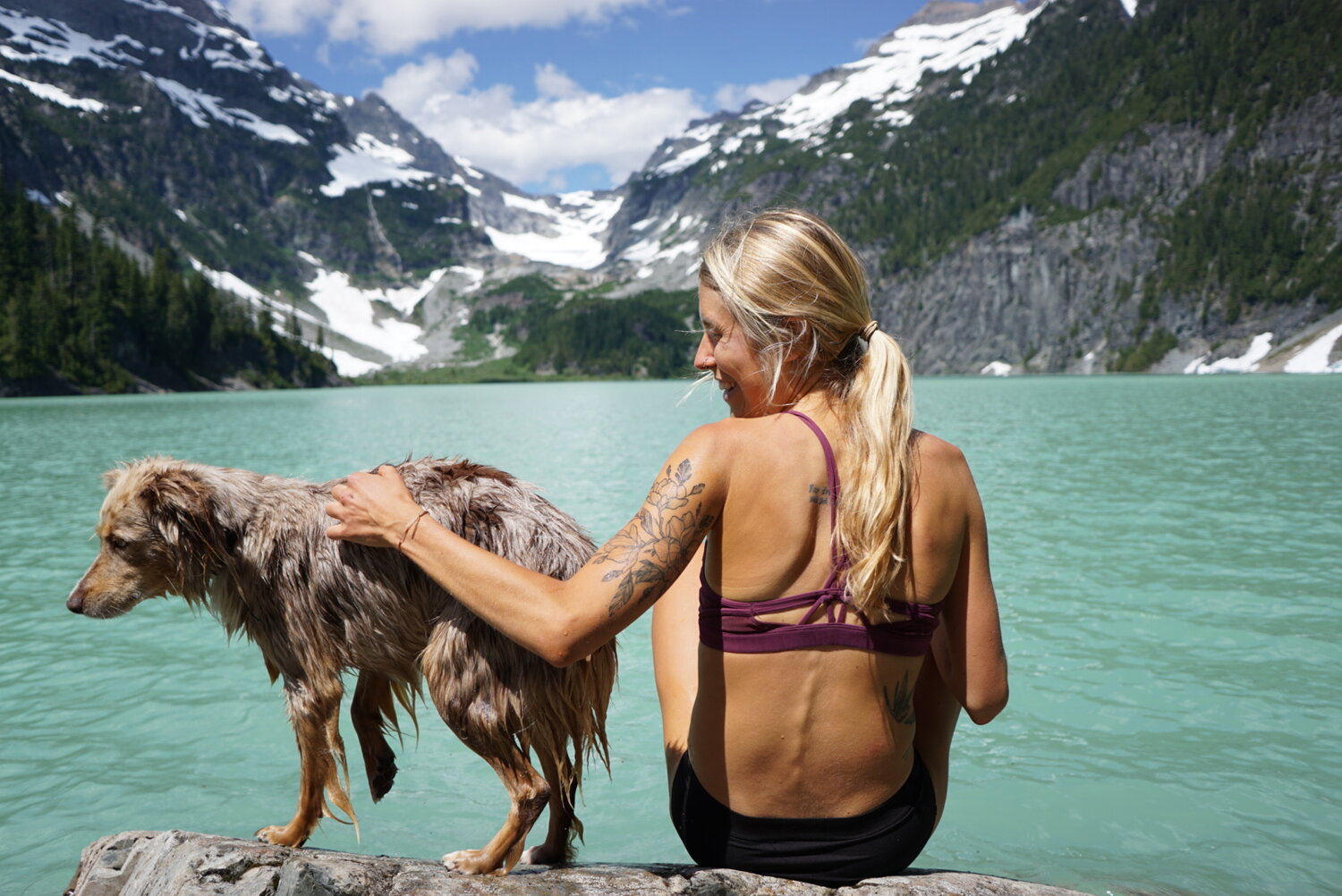
Kara Folkerts is a plant powered trail runner, sustainable travel advocate, yoga teacher, and passionate about all things sustainability, travel, health, and outdoor movement. Originally from Canada, Kara has spent the last few years exploring and living abroad in various countries across the globe before joining the Aspire crew in 2020. Kara has been guiding various trail running, sustainability, and health retreats internationally since completing her undergrad in Ecotourism and Outdoor Leadership. With all of these experiences, she seeks meaningful connections with others, loves to learn of new cultures, and fosters the mindset of a lifelong learner. With a big heart for trail running and exploring wild places, she’s always stoked to get out there with others.
She writes about all her adventures on her blog at www.karafolkerts.com and on her instagram @karafolkerts

